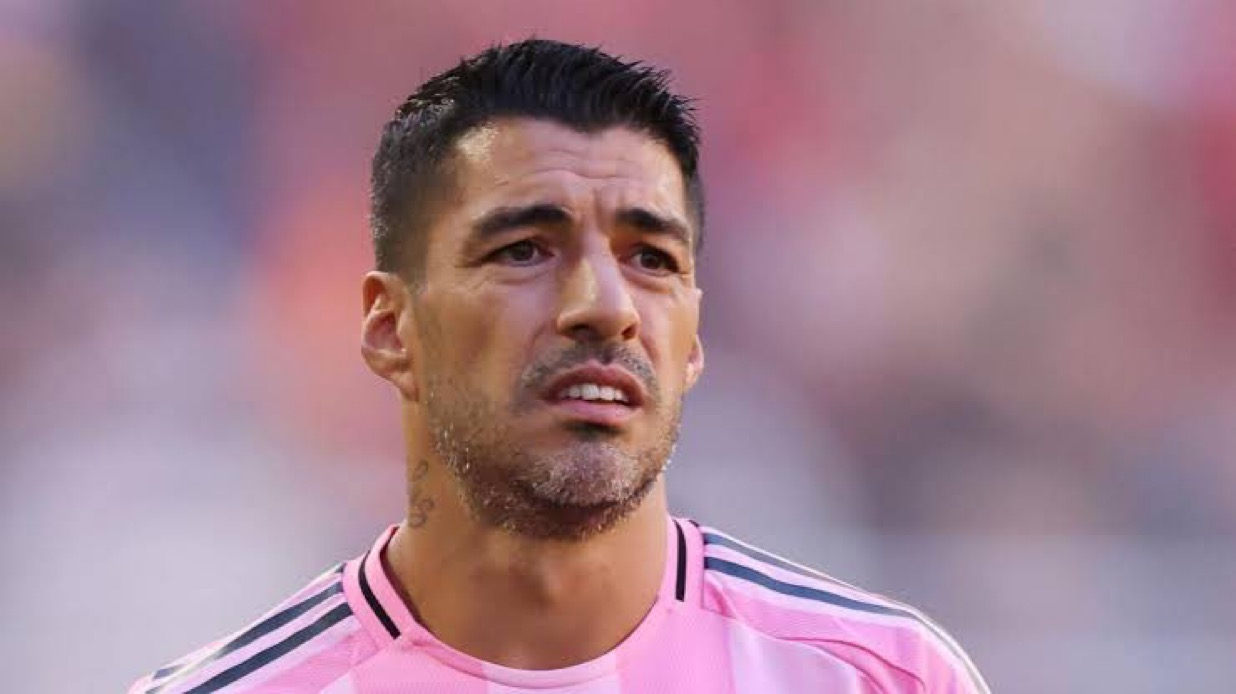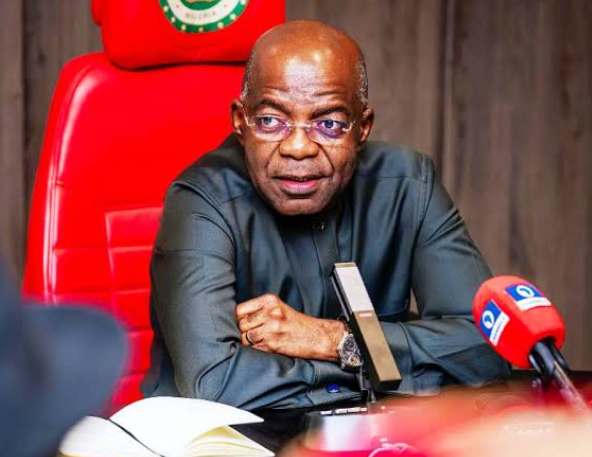

The world of football has once again been shaken by controversy as Uruguayan striker Luis Suarez finds himself at the center of disciplinary action, this time in the Leagues Cup Final where his actions have led to a six-match ban that has left fans, pundits, and players divided. The incident, which unfolded in front of millions of viewers, is being described as one of the most unsportsmanlike moments in recent football history, and the punishment meted out by tournament organizers has sparked fierce debate about discipline, respect, and the fiery temperament that has long defined Suarez’s career.
The Leagues Cup Final was billed as a spectacular showdown, a grand clash between two sides who had fought their way to the pinnacle of the competition. The atmosphere inside the stadium was electric, with passionate fans from both sides chanting, singing, and waving flags in anticipation of an enthralling contest. Suarez, now in the twilight of his illustrious yet turbulent career, was expected to be a key figure in guiding his team to victory. The striker, whose name is etched into the history books of clubs like Ajax, Liverpool, Barcelona, and Atlético Madrid, still carries the aura of a world-class forward despite his advancing years. However, instead of being remembered for his contributions on the pitch, Suarez’s actions in the final will now be remembered for all the wrong reasons.
As tensions boiled over in the fiercely competitive match, Suarez became embroiled in a heated exchange with an opposing player following a contentious tackle. Tempers flared, words were exchanged, and in a shocking moment that was caught clearly by cameras, Suarez leaned forward and spat directly at his opponent. Gasps echoed around the stadium as the incident played out in real time, with referees rushing in to break up the altercation. For fans, especially those who have followed Suarez’s career closely, it was a painful reminder of the darker side of a footballer whose genius has often been overshadowed by impulsive and controversial behavior.
The referee wasted no time in consulting VAR, and within moments, Suarez was shown a straight red card, leaving his team to finish the high-stakes final a man down. The dismissal proved costly, with his side struggling to cope against their opponents, who capitalized on the numerical advantage to tilt the balance of the game in their favor. By the time the final whistle was blown, the trophy had slipped from Suarez’s grasp, but it was the incident itself that dominated the headlines rather than the outcome of the match.
In the aftermath, the disciplinary committee convened swiftly to assess the situation, and the ruling was decisive: a six-match ban for Suarez, effectively sidelining him for the early stages of the upcoming campaign. The punishment reflects not only the seriousness of spitting—a gesture universally regarded as deeply disrespectful and unsporting—but also Suarez’s history of controversial conduct. This is not the first time the forward has faced disciplinary measures for actions outside the bounds of fair play.
Suarez’s career has been punctuated by moments of brilliance on the pitch but equally by infamous incidents that have tarnished his reputation. The football world still remembers his handball against Ghana in the 2010 World Cup, an act that denied Africa its first-ever semi-finalist, his racially charged altercation with Patrice Evra during his time at Liverpool, and most notoriously, the three separate biting incidents against Otman Bakkal, Branislav Ivanovic, and Giorgio Chiellini. Those biting episodes earned him lengthy suspensions and global infamy, making his name synonymous not just with goals but with controversy. For many, the spitting incident is yet another entry in the long list of missteps that have followed him throughout his playing days.
Reactions to the ban have been polarized. Supporters of the decision argue that the six-match suspension sends a strong message that such conduct has no place in modern football. Spitting, they argue, is an egregious act that shows a lack of respect not only for the opponent but also for the game itself. Football, watched by millions around the globe including impressionable children, cannot afford to tolerate behavior that undermines the principles of sportsmanship and respect. Critics point out that Suarez, as a seasoned professional with decades of experience, should know better than to let his emotions boil over in such a disgraceful manner.
On the other hand, some fans and pundits have expressed sympathy for Suarez, suggesting that while his actions were inexcusable, the punishment may be excessive given the heat-of-the-moment nature of the final. They argue that emotions in a final run high, and while the spitting was unacceptable, the ban effectively sidelines a player in what could be one of the last major competitions of his career. Suarez himself has reportedly issued a statement expressing regret for his actions, apologizing to fans and teammates while vowing to learn from the incident, though many remain skeptical given his track record.
The controversy also reignites a broader conversation about how football deals with misconduct. While violent tackles and reckless challenges often dominate disciplinary discussions, actions such as spitting, simulation, or verbal abuse highlight the many ways in which the spirit of the game can be undermined. The governing bodies’ decision to impose a six-match ban reflects an attempt to set a precedent, ensuring that players, regardless of their status or achievements, are held accountable for their actions.
For Suarez’s team, the suspension comes as a major blow. His absence will force the manager to reshuffle attacking options at a time when cohesion and momentum are critical. Younger players may have to step up to fill the void, but the shadow of Suarez’s misconduct will loom large over the dressing room. For his teammates, it is a bitter pill to swallow, knowing that the actions of one player have not only cost them in the final but will also affect the opening stages of their next campaign.
As the dust settles, one is left to wonder what Suarez’s legacy will ultimately be. There is no question that he is one of the most talented strikers of his generation, a relentless goal-scorer capable of moments of magic that few can replicate. His partnership with Lionel Messi and Neymar at Barcelona produced some of the most scintillating football ever seen, and his contributions to Uruguay’s national team cemented his status as a national hero. Yet, alongside the glory and the goals lies a darker narrative, one of controversies, suspensions, and actions that have repeatedly undermined his brilliance.
The six-match ban for spitting in the Leagues Cup Final adds another chapter to this complicated story. For some, it is the final confirmation that Suarez will forever be remembered as much for his flaws as for his footballing genius. For others, it is a tragic reminder of how easily greatness can be overshadowed by lapses in judgment. What is certain is that football has once again been reminded that even its brightest stars are human, prone to mistakes, and subject to the same rules as everyone else.
In the end, the Leagues Cup Final may be remembered not for the goals, the saves, or the lifting of the trophy, but for the moment when one of football’s most polarizing figures lost his composure and paid the price. Luis Suarez’s six-match ban is not just a punishment—it is a symbol of the game’s ongoing struggle to balance passion with discipline, brilliance with responsibility, and legacy with controversy.


